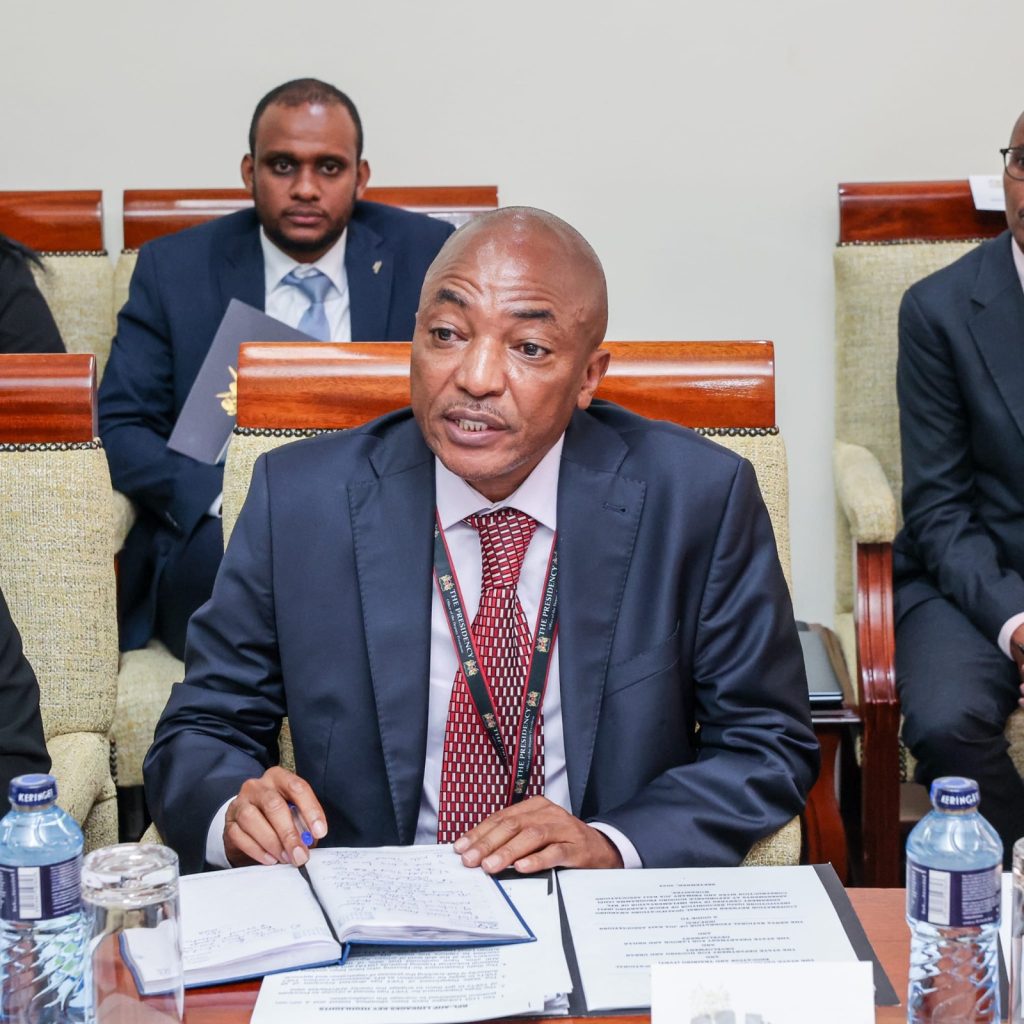Kenya Launches Certification Framework for Artisans Under Affordable Housing Programme

Richard Muteti, Advisor, Informal Sector Transformation, ODP
The Government of Kenya has unveiled a framework to assess and certify artisans with uncertified skills through the Recognition of Prior Learning (RPL) initiative. The new policy will be implemented at Affordable Housing Programme (AHP) construction sites and primary Jua Kali Association worksites, providing a pathway for artisans to transition from informal to formal employment.
Two weeks ago, Deputy President Rigathi Gachagua announced this revolutionary approach, highlighting the government’s commitment to transforming the informal workforce into a more structured and recognized sector. This initiative is not only set to provide artisans with formal employment opportunities but also to link them to both local and international job markets.
The framework, developed through a multi-agency collaboration, will involve several key State Departments, including those for TVET, Housing and Urban Development, Labour and Skills Development, and MSMEs. The Kenya National Federation is also part of this broad initiative. The Kenya National Qualifications Authority (KNQA) will spearhead the policy’s implementation, focusing on awareness creation, sensitization, and capacity-building forums.
The RPL policy aligns with the Kenya Kwanza Government’s goal to significantly increase the supply of affordable housing units, raising the number from the current 50,000 units per year to 250,000 units annually over the next five years. This ambitious target is expected to generate over 500,000 new jobs for young people, particularly those graduating from TVET institutions, both directly in construction and indirectly in the production of building materials.
KNQA Director General, Dr. Alice Kande, emphasized the importance of the Kenya National Qualifications Framework (KNQF) in this initiative. “KNQF is a comprehensive system that organizes all forms of learning—formal, non-formal, and informal—across educational and training sectors. The distinct KNQF levels are defined by descriptors covering knowledge, skills, and competencies,” Dr. Kande stated.
The KNQF’s three sub-frameworks—Academic, TVET, and Industry—provide clear progression pathways for certification, including recognition of prior learning. This system aims to enhance access, equity, quality, and relevance in Kenya’s education and training sectors.
Kenya has already begun implementing the RPL policy across various institutions following its official launch in March. The implementation is being carried out through a ‘Whole of Government Approach,’ ensuring all relevant stakeholders work collaboratively to enhance the policy’s effectiveness.
The RPL policy is seen as a transformative step in recognizing the practical skills and knowledge that artisans have acquired through experience. By formalizing these competencies, the policy opens up new employment opportunities, both locally and internationally, for thousands of Kenyan workers. This initiative is expected to significantly boost the Jua Kali sector’s capacity to produce high-quality construction products, further supporting the country’s economic development.
Moreover, Kenya’s commitment to quality education and training is evidenced by its leadership in developing and implementing accreditation standards and procedures across the continent. This new framework for skills recognition will contribute to better coordination and harmonization of qualifications across various sectors, from basic education to lifelong learning.
The RPL initiative is also in line with continental and global efforts, such as the African Union’s African Continental Qualifications Framework (ACQF-II) project. This project, supported by the European Training Foundation (ETF), aims to enhance the transparency, comparability, and recognition of qualifications across Africa, promoting lifelong learning and facilitating collaboration between National Qualifications Frameworks.
As Kenya continues to implement the RPL policy, it positions itself as a leader in formalizing informal skills and providing artisans with the recognition and opportunities they deserve, paving the way for greater economic growth and social equity.





